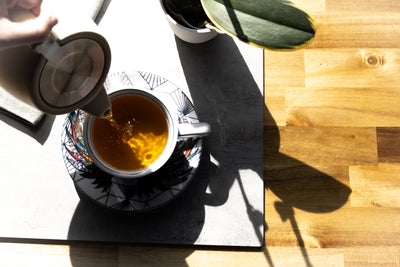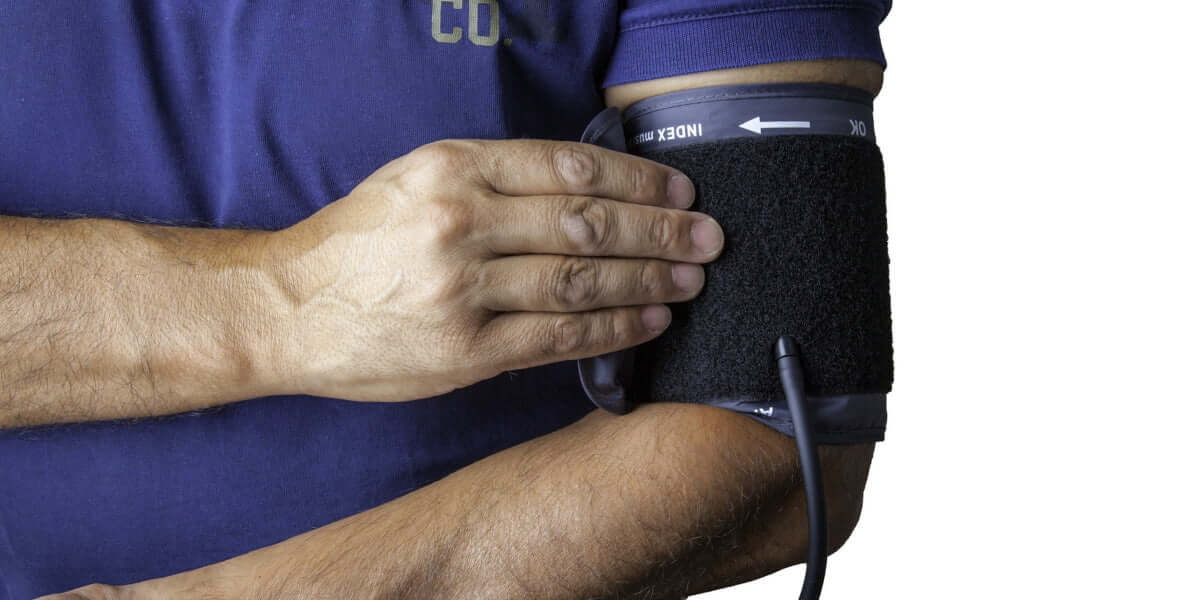What kind of tea is the best to lower high blood pressure?
If you were diagnosed with high blood pressure, it's possible to reduce it by changing lifestyle and diet. Of course, you and your doctor would need to make the ultimate call. But there have many successful instances of people doing this naturally and without medication. The good news is the tea can be the perfect partner to lower high blood pressure when combined with proper diet and physical activity.
Our top tea pick to lower high blood pressure : Hibiscus Tea
Tea from the hibiscus flower is said to have many health benefits. The naturally caffeine free rose-colored tea is our #1 recommend tea for high blood pressure. Hibiscus also has mild blood vessel-dilating effects. It is also rich in antioxidants.
Other kinds of tea that lower high blood pressure
Chamomile Tea
Chamomile tea has been used for generations for its calming and sedative properties. It is an ideal solution for hypertension, as it can help relax the blood vessels and arteries. This vasodilating effect makes it a great natural remedy for high blood pressure.
Green Tea
Green tea helps dilate heart arteries by allowing the vessels to relax and allow blood to flow more freely. The flavonoids in green tea help prevent inflammation of the heart tissue. These substances may also help prevent the formation of clots. It doesn't matter if it's iced or hot. Sip on green tea throughout the day to enjoy these benefits.
Rooibos
This popular South African beverage is naturally caffeine free. Drinking rooibos can impart heart-healthy benefits. Chrysoeriol, an antioxidant in rooibos tea has been shown to reduce narrowing and hardening of the arteries by inhibiting the migration of smooth muscle cells inside the aorta. Rooibos tea also helps by inhibiting the activity of the enzyme responsible for cardiovascular disease.
Greek Mountain Tea
This tea comes from a family of herbs called 'Sideritis' harvested in the Mediterranean region. These plants have anti-microbial, anti-inflammatory, antioxidant and anti-spasmodic properties. They are rich in a number of natural antioxidants, including flavonoids, and contain essential oils. A study featured in the October 2012 issue of the Journal of Physiology and Pharmacology found that extracts made from sideritis helped lower high blood pressure while helping blood vessels to relax.
Turmeric Tea
We’ve seen research emerge suggesting that turmeric can help treat a broad spectrum of medical conditions. From aiding weight loss in people with metabolic disorders to treating arthritis and joint pain, it appears that curcumin can benefit almost any ailment. Turmeric can even be used as a blood thinner or as a natural supplement for liver detox.
Recently, turmeric has shown an ability to modulate blood pressure and assist the cardiovascular system under certain conditions. If you’re dealing with high blood pressure (HBP), curcumin, the active ingredient in turmeric may be a natural means to manage it.
What is the best way to try these teas to lower high blood pressure?
Ok, now that you know some of the ingredients - what next? How much should you drink? Tea is an ideal water substitute, so sipping on tea throughout the day ensures you have these beneficial compounds in your bloodstream at all times. Most studies show 3-5 cups as the ideal "sweet" spot for measurable benefits.

